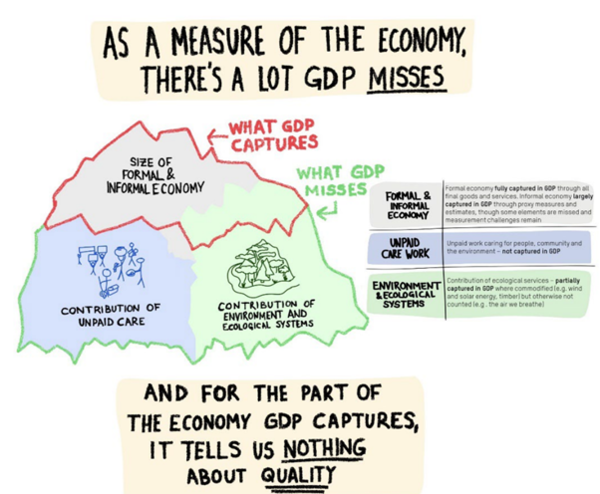
For long, Gross Domestic Product (GDP) stood tall as a defining measure for nations' economic success. But Kate Raworth is now challenging such a tradition seriously, calling for universities to teach an arguably more humanizing alternative instead. “For almost 80 years, economists have fixated on GDP as the primary measure of economic progress,” Raworth’s Doughnut Economics Action Lab writes on its website.
“But GDP is a false goal waiting to be ousted. The 21th century calls for a far more ambitious and global economic goal: meeting the needs of all people within the means of the living planet,” it adds. The Action Lab lists a university curriculum ready for use in college courses.

The alternative to GDP, the Doughnut Economics, calls for the collective’s thriving and for the planet’s well-being. Raworth’s argument is that GDP does not help people understand what’s being produced, how it’s being produced, and who it benefits. She imagines, instead, an economic system in which the primary goal is for people to live well with each other, rather than sacrificing any living being’s wellness for “economic growth.
” The new metric also counts what is currently neither counted nor monetized in the formal economy. Women’s household labors count and nature is an asset, for instance, and they both will count towards a nation’s economy. Doughnut economics, Raworth’s proposed economic system, rejects the idea of “rational economic man” that lies at the heart of current economic model, where the man stands alone and is motivated to dominate.
Instead, the model envisions human nature as reciprocal and pro-social, each interdependent on one another. The doughy ring in the doughnut economic model represents a system whose goal is to let no living being fall into the hole, an area where there is no food, housing, and other basic necessities. The outer crust signifies what happens when the system overshoots: damage to the environment and loss of biodiversity are some of the results.
“We have inherited economies that need to grow, whether or not that makes us thrive,” Raworth told the New York Times. “The evidence is clear that this is not making us thrive. We need to create economies that enable us to thrive, whether or not they grow,” she added.
“We must create economies that are distributive, that share value and opportunity with everybody who cocreates it,” Raworth highlighted. She cited the creation of a doughnut of California by California Doughnut Economics Coalition, where one can see ecological overshoot and social shortfall. “They’re using it as a monitoring tool, and it’s a much richer tool than GDP because it measures the well-being of people in the terms of real life,” she added.
.










